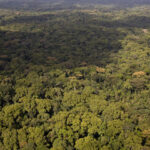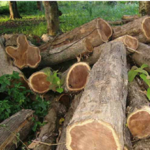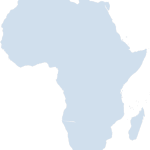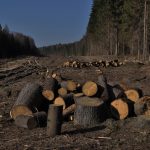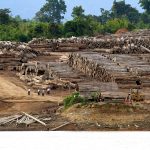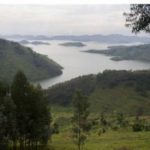
India has between 3–4 lakh coffee farmers, 99 per cent of whom are small growers, according to the Coffee Board of India. The Board the Board has launched the India Coffee App, equipped with an integrated EUDR compliance module, enabling farmers to upload data.
Although most Indian coffee plantations were established long before EUDR 2020 cutoff, registering lakhs of small, scattered holdings into a central traceability system will be a challenge.
ArcelorMittal Liberia gave the Gba Community Forest US$150,000 to clear 450 acres for a waste plant, but locals misused the money. Gba and Westwood Corporation signed an MoU to clear-cut the area anyway to make up for the stolen funds. The deal includes an unspecified number of logs that a previous company had illegally harvested, costing the government revenue. The FDA authorized Westwood to skip harvesting requirements, including a mapping and GPS-recording of trees, undoing the immediate past administration’s legal order. Westwood exported the timber to Italy, though the harvesting breaks Liberia’s timber trade agreement with the European Union.
Albania has lost about 6.5% of its total forest area over the past 20 years. Research shows that the country’s 2016 moratorium on commercial logging has not stopped the deforestation. Italy is still the country to which Albania exports most timber and paper products.
The article links the illegal logging with Minelli Spa, part of the Italian Minelli Group, over the past 10 years. This company manufactures high-quality wood products, such as stocks for sporting and recreational rifles, handles for brushes, knives and brooms, and components for wooden toys.
Davide Pettenella, professor of forest economics at the University of Padua and former Balkans consultant for the FAO (Food and Agriculture Organization of the United Nations), says that “the EUTR would not stop illegal activity from Albania because the system is created for traceable and legal wood, but in a chain of corruption, which starts with illegal logging and then [continues with] controls at customs, measurements, sales and exports, it is almost impossible.”
Sources from the Italian forestry police admit that they operate mainly on the basis of documentation checks and only conduct random checks in the field every two years.
A strengthened Ruble, weak import duties and a decline in European demand is a perfect storm – with the peak body for furniture now urging Putin to ramp up import duties to protect the local industry.
Italy and Germany are the leading contributors to the surge entering Russian ports, with export volumes from both countries nearing pre-COVID (and Ukraine war) levels. At the same time, Russian domestic production has dropped by 2%, with the cost of materials and other components—including plywood, MDF, and particleboard—expected to rise by more than 15%.
Despite the 2016 moratorium, illegal logging continues in Albania, fueled by corruption, weak law enforcement, and European demand, particularly from Italy. However, new EU regulations designed to combat this issue risk pushing small businesses toward timber mafias.
According to INSTAT , between 2018 and 2023, Albania lost 320,000 hectares of forest and pastureland (18%), including 82,000 hectares of “pure” forest (7%). In 2023, Global Forest Watch reported a loss of 2,200 hectares, equivalent to 1.01 Mt of CO₂ emissions, marking the “final sprint” of a “massacre” ongoing for over 25 years, largely ignored and facilitated by poor local traceability.
In the official silence, the shrinking percentage of tree-covered land plays a solo tune, despite a 2016 moratorium (Law 5/2016 ) banning exploitation and prohibiting the trade and export of wood products until 2026.
Fines of up to 36,000 euros are imposed, except in three cases: cutting to meet local communities’ firewood needs, forest renewal and cleaning, or changes in land use.
Once the law was passed, government investment in the forestry sector plummeted: zero in both 2016 and 2017, according to INSTAT , and 220,000 euros in 2018 for “forest restoration.”
Alongside the moratorium, the government also made an institutional adjustment, transferring forest management responsibilities from central authorities to 61 municipalities, 33 of which, as of 2023, had no management plans, personnel, or monitoring equipment to implement them.
The woodlands of Albania once covered nearly half of the country. In these past 25 years, however, reports estimate a 20% loss to the country’s forest cover. Albania’s forestry sector is plagued by uncontrolled logging, a sprawling informal economy, and weak regulatory enforcement. The collapse of state control in the 1990s opened the floodgates to illicit timber harvesting. Investigations by the Balkan Investigative Reporting Network found that in 2011 alone, approximately 1.3 million cubic meters of treeswere felled illegally, often with the tacit approval of corrupt officials. and evading taxation and regulation. Official wood production statistics do not match actual consumption.
In 2016, the Albanian government imposed a nationwide logging moratorium. Law No. 5/2016 banned commercial logging in both public and private forests for the following decade, with limited exceptions for community firewood and forest health interventions. Timber exports were also outlawed. However, as time passed, the moratorium limitations became hard to ignore. Illegal logging had not ceased, it had adapted. Loggers moved deeper into remote areas, operated at night, and refined their methods to avoid detection.
The 2016 moratorium was accompanied by a major institutional shift: the transfer of forest management responsibilities from central authorities to Albania’s 61 municipalities, intended to bring governance closer to local communities, allowing for better oversight and accountability. In practice, however, it exposed severe capacity gaps . Many municipalities were ill-equipped to manage vast forested areas. As of 2023, 33 out of 61 municipalities had no forest management or reforestation plans in place.
Experiences of neighboring countries of North Macedonia, Bosnia Herzogovina and Italy are cited.
FSC and Assurance Services International (ASI) announce the launch of the Teak Corridor transaction verification (TV) loop. FSC and ASI have conducted TV loops on FSC-certified high-value timber species like teak (Tectona grandis) in the past. The previous teak TV loop, along with other available information, indicate the possibility of integrity risks in the segregation of FSC-certified and non-certified teak in the supply chains.
Therefore, FSC recommends certificate holders with teak in their certification scope to apply additional due diligence in selecting their teak suppliers and following FSC rules to ensure that the teak products they purchase are legitimate and within the FSC certificate scope of the seller.
Lawyers at ClientEarth say that despite clear regulations, the Polish authorities are not taking sufficient action to control imports and enforce bans on the wood.
According to the data from Poland’s Central Statistical Office, between 2021 and 2024, the total value of Myanmar’s wood and wood products imported to Poland was over EUR 11 million (PLN 47 million). Poland is not the only importer of Myanmar teak in Europe: Italy, Slovenia and Croatia also import significant volumes of the wood.
ClientEarth is appealing to Poland’s Chief Inspectorate of Environmental Protection to immediately carry out inspections of timber importers from Myanmar and to enforce penalties for companies violating the law. It also requests increased transparency in the monitoring of timber supply chains and better implementation of EU regulations in Poland.
Operators across the regional have signalled a significant weakening of demand in international markets. Some mills servicing the Chinese market have temporarily ceased operations due to falling Chinese timber imports, others, have pivoted production to species in demand in the EU notably azobe for the Dutch market and timbers such as padouk for Belgium, agba for Portugal and bahia for Italy.
The Irrawaddy River is a flashpoint for conflict timber, with more than 100 tons—and sometimes up to 300 tons—of teak and other species leaving Myanmar ports every week.
The teak is then traded into Western Markets (including Italy, teak’s entry point into the EU) via China, India and Indonesia, with proceeds used to fuel both sides of the conflict.
Yesterday, Mynamar officials announced that more than 1,600 tons of teak (more than 250 tonnes a week) had been confiscated over the past six weeks, in a major escalation in the trade across borders. And that is just the timber, deemed “illegal” by the junta-controlled government – with the hidden trade in teak booming amongst the junta’s allies.
A new Greenpeace report, Nature Crime Files – Romania – Greenpeace International, followed the traces to the suppliers of furniture companies, such as IKEA. By closely examining the entire supply chain, from logging sites to wood depots, including scrutinising transport permits with geolocation attributes, and visiting processing facilities Greenpeace CEE found old-growth or other high conservation value destruction linked to at least seven different IKEA suppliers in Romania. Investigations identified at least 30 IKEA products, and some of IKEA’s well-known furniture, originating from these producers, raising a concern that wood from old-growth forests could ultimately end up in homes all over Europe and beyond.
This is the second part of a cross-border investigation conducted by Voxeurop and Periodistas por el Planeta into how soy from deforestation-prone areas in Argentina arrives in Europe by exploiting legal loopholes and abusing self-regulation. You can read the first part of this investigation here.
Europe’s food giants turn a blind eye to deforestation in Argentina – VoxEurop
A cross-border probe, led by ICIJ and first published in March 2023, involved 44 media partners globally and documented how Western environmental auditing firms and governments failed to stop the trade of wood logged in conflict zones.
The findings supported a June investigation from ICIJ partners Paper Trail Media, Der Spiegel, ZDF and others that similarly revealed how Russian timber continued to circumvent the EU’s embargo, making its way into the bloc by routing through countries like China, Turkey, Kazakhstan and Kyrgyzstan.
Illegal timber from Myanmar continues to be imported into Europe and the US despite Western sanctions. In Europe, Italy continues to stand out as a destination for teak and other controversial forest products. Between January and October 2023, Italian companies imported more Myanmar wood products than any other European country — about $3.3 million worth — for use in furniture and construction, according to Italian government data analyzed by the national timber trade association FederlegnoArredo.
During a virtual meeting of the European Commission’s expert group on protecting and restoring forests on May 4, a representative from the UN Environment Programme World Conservation Monitoring Centre presented data showing that 13 EU member states had imported Myanmar timber products, which were likely to be teak, in the past year. Italy, France, Poland and Spain topped the list, with Italy importing an amount estimated to be worth more than $20 million since March 2022, according to Eurostat.
Russian mercenaries with close ties to President Vladimir Putin and a logging contractor exposed for funding African rebels help feed a barely-regulated European timber rush in one of the world’s poorest and most fragile countries, according to a new report by Earthsight.
New evidence shows that an obscure company reportedly controlled by the Russian Wagner paramilitary group supplied timber to European consumers. The trade embroils a firm listed on London’s AIM stock exchange that was part of a national delegation at the COP26 UN climate summit in Glasgow.
Negligible fines and inadequate enforcement are turning Italy into a hotspot for illegal Myanmar timber, a new report says.
At least 27 Italian traders have been importing Burmese teak into Europe despite timber imports from Myanmar being against the law.
Italian traders are exploiting the country’s inadequate enforcement to ship timber to the rest of Europe and circumvent the EU’s sanctions and regulations.
Despite EU laws, the Environmental Investigation Agency reveals that Myanmar teak is still moving through Europe and being used in the yachting industry.
The Zoological Society of London (ZSL), which, in its 2025 SPOTT assessment of 100 major forestry firms, reports that only 18% disclose the countries from which they source, and a mere 4% can trace their supply chains down to the forest management unit (FMU) level. At the same time, Wood Central understands that none of the companies assessed publish georeferenced maps for all third-party FMUs, and just 3% report what share of their supply is verified deforestation-free.
SPOTT assesses 100 timber and pulp producers, processors and traders on their public disclosure regarding their organisation, policies and practices related to environmental, social and governance (ESG) issues. Each company receives a percentage score to benchmark their progress over time. See further explanation of assessment scores here.
Click here to access the Global Illegal Logging and Associated Trade (ILAT) Risk assessment tool and to download the Forest Trends User Guide describing the functionality of the ILAT Risk Data Tool.
Click here to access the Cattle Data Tool.


